#symbiosis enjoyer
Note
I come from non-existence with but a question...how funny would a super Saiyan Colin look... like... just picture that for a second...

This form...on him... would probably be strange... damnit now I wanna see that... oh and, thanks for the ssj4 Goku art, it was incredible!
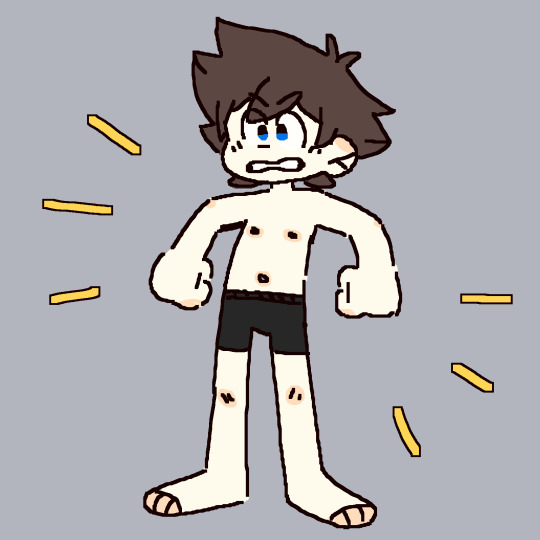

Oh he only wishes he could look that cool ...
42 notes
·
View notes
Text
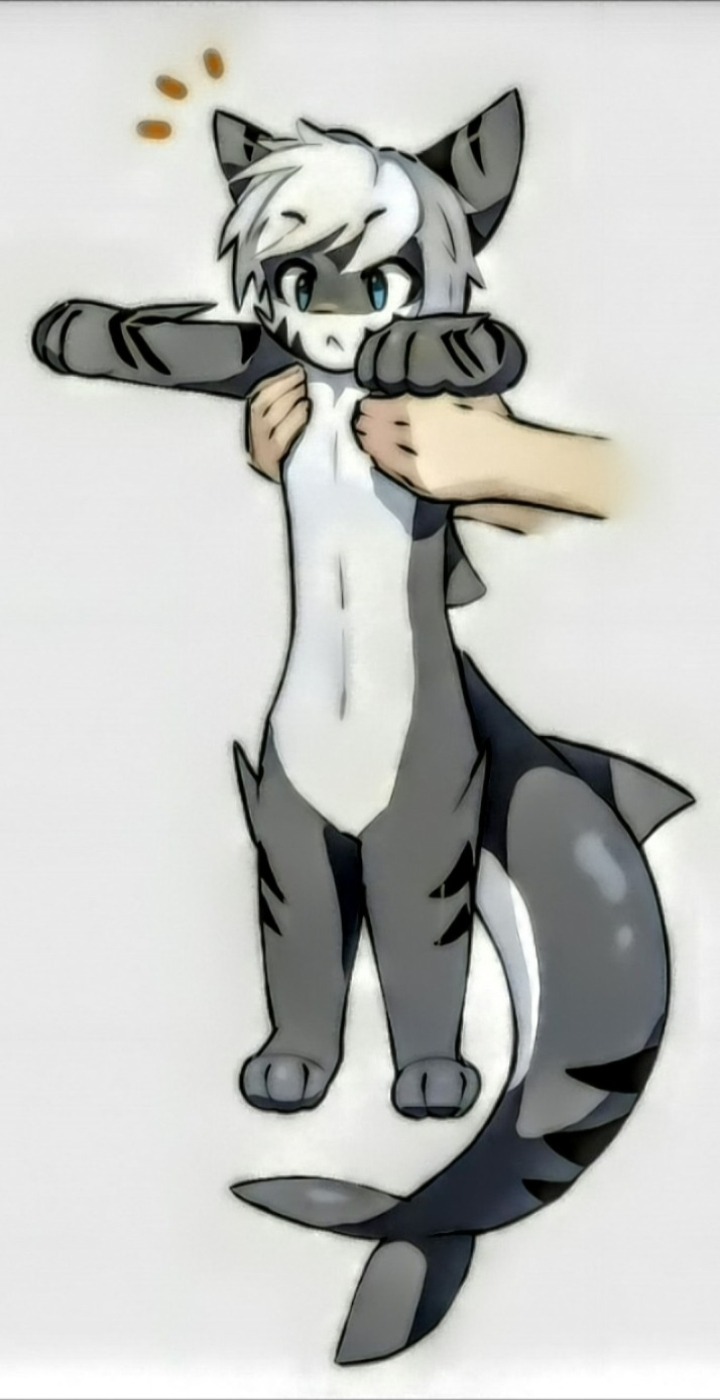
Y'KNOW WHAT, FUCK IT, IMA POST THIS SHITTY BUTCHERED IMAGE OF LONG SHARK BOI!
Also have this Goku Black image and bangin' song by divide music:
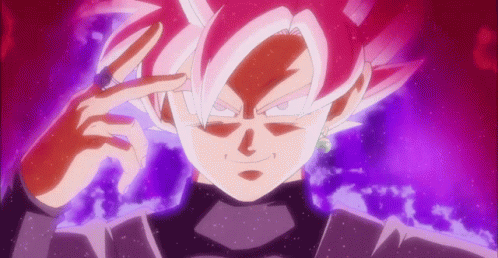
9 notes
·
View notes
Note
ALRIGHT THATS IT IM COMIN OVER THE FENCE!
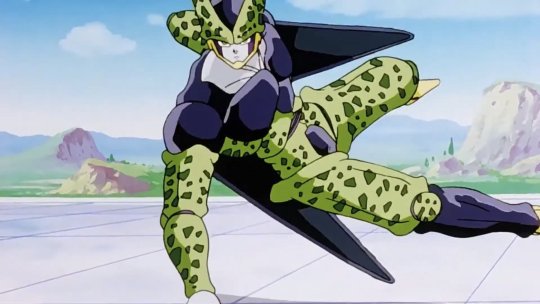
YOU'RE GONNA GET A PERFECT ASS-KICKIN'!
Umm why? Who are you and why do you wanna give me an ass-kicking? Perfect or otherwise.
See I’m not really into having an ass-kicking today, so bye!
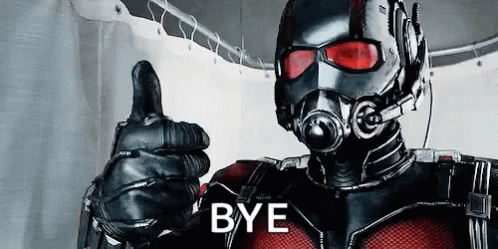
1 note
·
View note
Note
Mental health check... how ya doing?
I'm okay <3. Struggling with my health, but other than that, I'm excellent <3
How are you darling? 🖤
8 notes
·
View notes
Note
Dumbass idea:
A yandere shark girl that has her witch friend curse ya with gills so she can keep you forever without drowning you, and without getting questioned.
★
6 notes
·
View notes
Text
yippee blue beetle 🎉
#lakimusings#just watched it!#i enjoyed it#i think for like. the whole alien symbiosis thing they should’ve cemented that more besides jaime bustin out the alien’s name randomly#but besides that it was enjoyable#and i was like 🫵🏽 bc i’m 21 and he’s 22#ik they’re gonna reboot everything so idk if they’re actually gonna follow through with the midcredits scene but would be interesting to se
1 note
·
View note
Text
@symbiosis-enjoyer
@serious-tabaxi
*All is quiet in front of the magic museum. The equipment is ready, the spells prepped.*
*through its labyrinthine corridors and halls is the botany section, a conservatory full of plants that are both potent and mischievous*
*deep underground through cursed laser mazes, riddles three, and giant spider battles sit the three interdimensional pearls...anyone who takes them could commit crimes on any plane of existence!*
Is everyone assembled?
72 notes
·
View notes
Note
*three people teleport nearby*
@blooper-malte @symbiosis-enjoyer
*you find yourself in front of the godfather as he types on a computer*
Yes?
61 notes
·
View notes
Text
Members of the council!
@your-local-evil-wizard (leader)
@nothingf-i-s-h-yhere
@shittest-wizard-ever
@frogpantsthebloodgod
@shittyspellcaster
@stellarcephalomage
@ash-the-tiefling
@lead-sorcerer
@not-a-suspicious-wizard
@symbiosis-enjoyer
@thetkagency
@illithathelich
@snomonomicon
I think we have enough. You can still join, but we have so many.
#wizard#wizardcore#wizard shit#wizardblogging#wizard posting#wizardblr#wizardposting#wizard stuff#wizard tumblr#wizard council#evil wizard#evil wizard posting#wizard blogging
70 notes
·
View notes
Note
Ssssss...oh... forgive me but... it'sss alwaysss a joy for me whenever I meet another naga like me who'sss more sssnake than man...
@symbiosis-enjoyer
wha- what makes you say that?
74 notes
·
View notes
Note
Just wanted to say: garou was on some real demon time like holy shit.
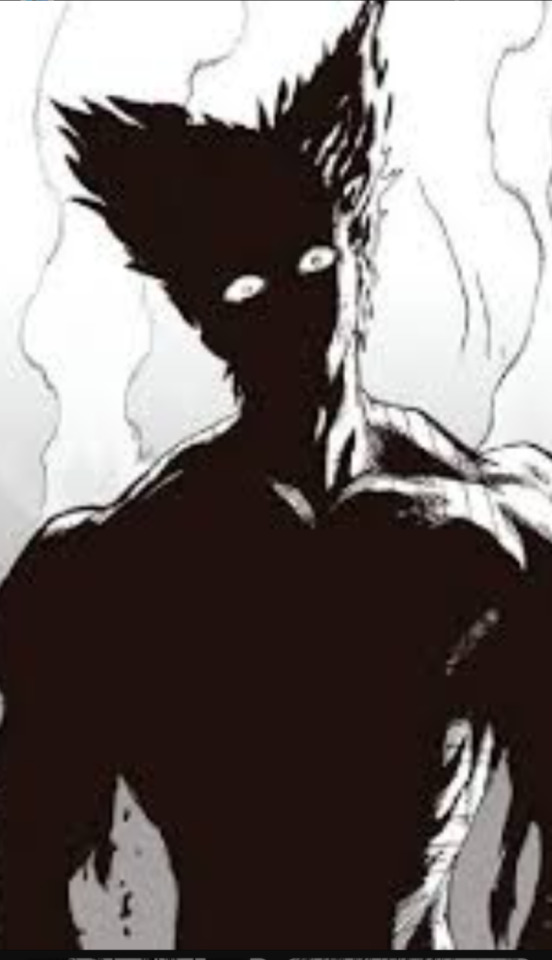
LOOK AT HIM, MANDELA CATALOGUE LOOKIN' MF, PURE. MENACE-
= )
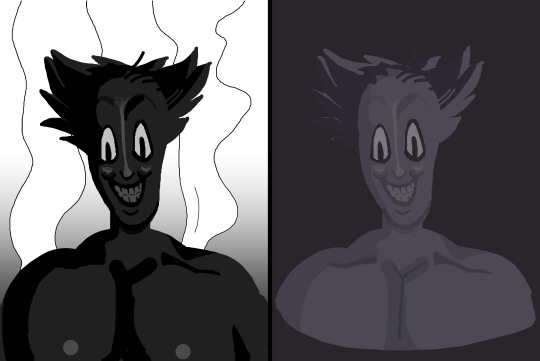
is this anything
#kyle shits out art#symbiosis enjoyer#reply#one punch man#thank you my wife for telling me who this freak is from ^u^#tw#scopophobia
8 notes
·
View notes
Text
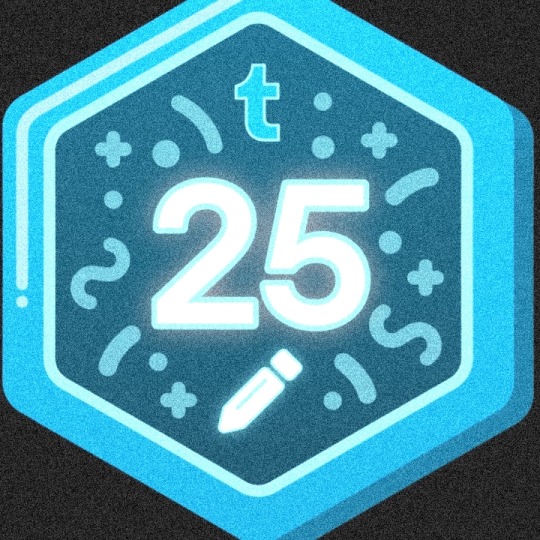
25 posts!
@fuzzy-oooze look how far just talking to you got me...y'all pushin' me to stop lurking like a gremlin and actually post...nice.
5 notes
·
View notes
Text
Thinking about the colors of Loki. Brown is definitely meant to be Mobius' color. It symbolizes reliability, warmth, and earthiness. And that earthiness? It meshes very with the positive aspects of Loki's green (growth, life, nature, harmony, fertility). So, it makes sense that when Loki and Mobius are their best selves, there's this harmonious and almost symbiotic growth that happens, not unlike the symbiosis between plants and the earth they take their nutrients from, earth which has, in turn, been fertilized by other plants.
Of course, the negative part of that is the potential for codependency - you introduce some poison to the soil and it infects the plant and vise versa. Imo, we see that a bit with the torture scene. That scene was great if you're a Loki enjoyer/apologist because, hey, turns out his partner is not only ok with the darker aspects of Loki's personality, he also maybe has some of them himself. However, it also showed us that both Loki and Mobius can do terrible things and be ok with them as long as the other agrees it's a good idea. When Loki and Mobius are working for good, they're great. But if they went bad together, things could get very dark very quickly. I think we also see that a bit in their last scene together, with Loki purposefully choosing a Mobius who is still pruning variants when he wants his blessing to kill Sylvie (who represents a part of Loki).
(Notably, though, with Sylvie's inspiration, Loki is able to choose a different path, and to grow in a way that gives Mobius the chance to grow as well, their positive symbiotic relationship intact - I particularly love that it's past Loki who inspires present Loki's heroism).
It's why I really liked the idea of Mobius, Loki, and Sylvie running the TVA together because Loki and Mobius need that voice outside their little couple bubble to say "hey, guys, this is a terrible idea." Ironically, when Loki and Mobius aren't together, they each tend to be the person in conflict with the systems around them. But they don't like to truly be in conflict with each other (the bickering is almost never serious), so they're each very accommodating of the other and his needs, which is great until...torture.
Anyway, to bring it back, I've always thought that green is a really great color for Loki specifically because it has a very strong duality of psychological meaning. Additionally, its darker meanings (jealousy, envy, materialism) are as well represented in popular culture as its positive ones. Brown has a similar clear duality, though its positive aspects aren't necessarily as easily recognized as its negatives. Which is very like Mobius himself.
#lokius#loki series#colors#i keep hoping that someone who actually knows about color in costuming and set design will write about Loki#be the change and all but i know my knowledge is terribly limited#but i thought this was neat
55 notes
·
View notes
Text
I am so curious what people think we had this dilemma for a while with my little sister.
Edit: Okay so just to be sure, some clarification for option 4 (not my preferred option but I want to be really fair)
So the main thing for this is that if you consider for example a lichen as its own species, neither fungi nor algae, based on that, the only situation where either Venom (the organism capable of symbiosis) or Eddie could commit cannibalism is when they eat someone in the same type of symbiotic partnership bc as Venom (the symbiotic partnership) they are technically neither of their original species'.
Also, thank you @aamy2100982 for pointing this out that commiting cannibalism and being a cannibal can be interpreted as having a different notion.
I kinda had to pull a Webster's dictionary definition here on being a cannibal. The official definition of a cannibal doesn't inculde enjoyment as a condition of being a cannibal. BUT if you don't agree with that definition please vote accordingly!
#venom#marvel#marvel comics#marvel community#venom symbiote#venom movie#venom comics#symbrock#veddie#eddie brock#venom 2 let there be carnage#tumblr polls#sony venom#tw cannibalism
53 notes
·
View notes
Note
*wandering in, tendrils swaying about*
@symbiosis-enjoyer
*Nothing strange is in the tavern yet.*
Wizard ghost: I haven't seen you before. What's your name?
(OOC: Also, I don't think you get notified when someone responds to an anon ask that tagged you, so @symbiosis-enjoyer.)
#wizard island island#wizard posting#wizardblogging#wizardblr#wizardcore#wizardposting#tavern adventure start#I lost your ask in my drafts#Also I see on your blog that you use a lot of GIFs and images from what I think is dragon ball but I've never watched it so I might not kno#what happens in them#Also also I haven't learned much about you from scrolling through your blog so I'm gonna wait until I do learn before#coming up with the weird thing
44 notes
·
View notes
Text
Pro-Jedi Essay On the Life and Fate of Shmi Skywalker (long post)
Many who believe that the Jedi Order had lost their way, are pointing at the life and death of Shmi Skywalker. However, their arguments are based on unexamined assumptions regarding the role and ways how the Jedi Order operates, the political and legal reality of the Galactic Republic, or founded on morals different from those depicted and advocated by George Lucas.
This is a long essay, possibly the longest I ever wrote, since each and any discussion regarding Shmi Skywalker and the Jedi Order, is the interplay of five distinct topics, con-joined and informing each other. These are:
The Paradigms of Love: Hierarchical vs. Horizontal
The Fall of the Galactic Republic: Fallen Symbiosis
Horizontal love, Anakin Skywalker and the Jedi Way
The Dark Side of "they could've free at least Shmi!
The Life and Fate of Shmi Skywalker - the Problem with "Deserving"
The Paradigms of Love: Hierarchical vs. Horizontal
One of the core lessons throughout George Lucas Star Wars, is that we need to clear ourselves from the attitude of discrimination toward others, based on feelings of distance and closeness, and that love manifests in two ways, along the same lines. On the one hand, there is love for those who’re immediately around you – your spouse, your parents, your children, your friends, and you do everything you can to protect the people that you love, against all those others outside that very tightly drawn circle. It’s driven by attachment: whether a person is within or without that circle, is determined by whether or not you find them enjoyable, agreeable, pleasant and satisfying, or whether or not they share your beliefs and opinions. We have the idea, deeply embedded into our minds, that the willingness to put people within that circle, our “personal relationships” first, and all the others who we have a bad, or no relationship whatsoever, second, is the measure of love, loyalty, commitment, affection and care.

On the other hand, there is unconditional love, that is compassion: wanting another person to be happy and free from suffering. By definition, compassion means to feel with, to suffer with and to experience with another - it's the sense of profound oneness, innate connectedness, a sense of being parts of each other, when we feel another person's suffering or happiness as our own. Just like when we hurt our finger, we don't think, "Oh, my finger is hurt, maybe I should help it", but rather, there is an instant and intuitive, natural response to it, our quest to be happy and not to suffer is inseparable from and complemented by the same quest of our loved ones. Unlike attachment, compassion can extend beyond the individuals who we're close with or make us feel good; based on the realization that all living things want to be happy and doesn't want to suffer, just as intensely as we and our loved ones are, it can encompass all living beings wanting to be happy and free from suffering - in fact, not even one living thing can be excluded from the circle of compassion. And therefore, if compassion is genuine, it's no longer possible to make hierarchy between the well-being of the people who're close to us and of those with whom we have adverse or no relationship at all.
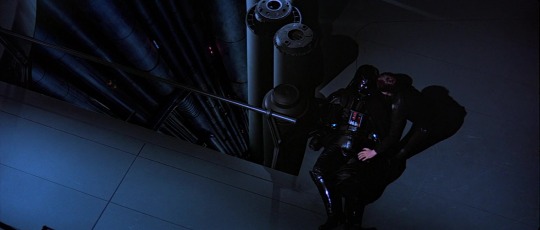
It's essential to understand that genuine compassion is to abandon such hierarchical thinking, not the reversal of the hierarchy, that is to discriminate toward the people we have close, compassionate, loving and trusting and personal relationships for the sake of the people we have adverse or no relationship at all. Nor does genuine compassion allow for lowering the love, care and commitment we have for those close to us, or to forego such relationships, that is trying to avoid discriminating based on feelings of distance and closeness, by not getting close to anyone. In many ways, that's more unwholesome. Genuine compassion is horizontal: the realization that all living things want to be happy and doesn't want to suffer, just as intensely as we and our loved ones are, allows compassion, the wish for others to be happy and not to suffer, to spread effortlessly, evenly, inexhaustibly. Indifference is to say, "I care no more for my mother than I care for a stranger", compassion is to say, "I care for this stranger no less than I care for my mother." In Buddhism, indifference is the "near enemy" of non-attachment: it's mimicking it, but it pushes us into suffering.
The Fall of the Galactic Republic: Fallen Symbiosis
The Balance of the Force
George Lucas' Star Wars story is essentially about the loss and restoration of the balance of the Force. Although there are many interpretations on this concept, Lucas himself was very clear on that balance of the Force means keeping our selfishness under the check of our selflessness and avoid falling to the dark side, which is greed and self-centeredness, and being compassionate instead, which is loving each other unconditionally and caring for each other. It's dual: when you find balance, you're a compassionate individual, you control your selfish side, and you can do a lot of good things; and when you have a group made up of compassionate individuals who control their greed, you can have a symbiotic circle, which is the balance of the two sides of the Force at large, of the galaxy itself, that is selfishness being under the control of selflessness, and people come together to be as one, cooperating.
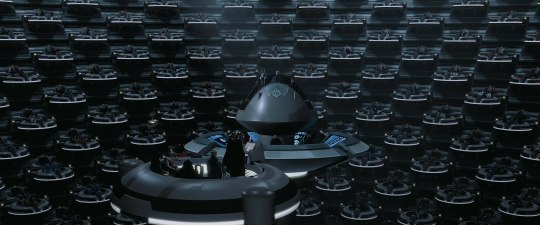
The central conflict of George Lucas’ Star Wars story is the loss of balance and the fall of a symbiotic relationship. The Galactic Republic is the galaxy forming a symbiosis, following the horizontal paradigm, existing in balance; the loss of balance is the shift from the horizontal love paradigm to the hierarchical one. "The Republic is not what it once was. The senate is full of greedy, squabbling delegates. There is no interest in the common good" and it "no longer functions" as it was said it Episode I, and as Lucas tells us, it's because "the Senators have fallen out of the symbiotic circle” and “they couldn’t agree on anything because their interests became so divergent, so they couldn’t get anything done as a Republic.” It's crucial to understand that although it's very popular to declare that the problem was the Senate, therefore, the Jedi Order was supposed to stop serving it, the issue depicted in Lucas' Star Wars is far worse and roots deeper than that. As corrupt and dysfunctional the Senate become, it was made up of senators who were elected directly or indirectly by the people of the member worlds. And as Ahsoka teaches the youth of Mandalore in Clone Wars, "citizens must be vigilant so corruption can't take root" and "it's every citizen's duty to challenge their leaders, to keep them honest and hold them accountable if they're not. Lasting change can only come from within." The horizontal love paradigm was declining in the entire galaxy, with individuals no longer operating as a group, no longer running their democracies, slowly drifting towards the hierarchical paradigm, which eventually erupted in the Separatist movement and the Clone Wars, resulting in the galaxy's fall to the dark side: the Galactic Empire. As Lucas summarizes the fate of the Republic: "well, the people gave it away." One of the core reasons why the "Jedi lost their way" theory gained a foothold is because the people are very much troubled by this notion, since it reveals that they have all the responsibility for maintaining democracies.
Understanding the Hutts and Hutt Space

The existence of slavery at the Outer Rim is the result of the gradual decline of the Galactic Republic. Tatooine is an out of the way, small, poor, sparsely populated planet on the outer rim of the galaxy, the home of the Jawas, the Sand People, scavengers and moisture farmers, controlled by the Hutt families who are vile galactic gangsters. It's part of the galactic underworld, where the anti-slavery laws of Republic, that are, as Padmé says, outlawing slavery in the entire galaxy, are not respected. As Shmi states, "The Republic doesn't exist out here. We must survive on our own." On Tatooine, the Republic's currency has no value, as people want "something more real", like ships, pods or slaves or "wupiupi" which is most likely made of something that has value on its own. Being the den of a powerful crime lord, the planet's spaceports, where slavery thrives, are "havens for those that don't wish to be found" and a "wretched hive of scum and villainy" - it's no surprise that in the cities grown around them, holding others hostage for economic gains or pleasure, which is against the laws established by the Galactic Republic as well, is part of everyday life. Hutt-controlled Tatooine is not a "slave state" as opposed to the "free states" of the Galactic Republic, like in the pre-1865 USA, nor it's an entity that shares borders with the Republic. In truth, Hutt Space, and everything within its borders can be paralleled only to those areas of Sudan, Liberia, Sierra Leone, Uganda, Congo, Niger and Mauritania, where the government has no effective control, and slavery is still alive and well in 2023. Although Jabba and the others are usually addressed respectfully, they're universally regarded as "criminals" or "vile gangsters." When Palpatine says, they must reach an agreement with Jabba, Mace Windu replies: "I don't like this, dealing with that criminal scum. This is a dark day for the Republic."
The Jedi Order: Guardians of the Waining Light
The Jedi Order was well aware of that the Force is out of balance. As Lucas says, "[Dooku] carries the sympathies of most of the Jedi, which is that the senate is corrupt and it's incapable of carrying on any meaningful action, because they argue about everything all the time" however, restoring lost balance cannot be done through force, only through bringing compassion and sanity back to the Senate and the galaxy. Many who believe, the Jedi Order had lost its way, argue, the Jedi Knights failed as guardians of peace and justice, neglected their duties and turned their backs on the most vulnerable - however, such allegations are founded on the idea that they were supposed to be the ones in the universe who erase injustice, conflict, and wrongdoing. It's very important to remember that the Jedi Knights, as they state it repeatedly throughout the Saga, are "keepers of peace, not soldiers" and "not warriors." Even though the Jedi Knights were inarguably very good warriors, in Episode II, it was illustrated powerfully that they cannot win on the battlefield. "A lot of people say, 'What good is a lightsaber against a tank?' The Jedi weren’t meant to fight wars. That’s the big issue in the prequels" Lucas reminds us. "If they do have to use violence, they will, but they are diplomats at the highest level" and "they don't kill people. They don't fight," and they "weren't mean to fight wars." If they Jedi would've decide to wage a war on the Hutts, the war would've siphon off Jedi Knights, neglecting the rest of the galaxy and they’d have lost, most of them killed, making things even worse.
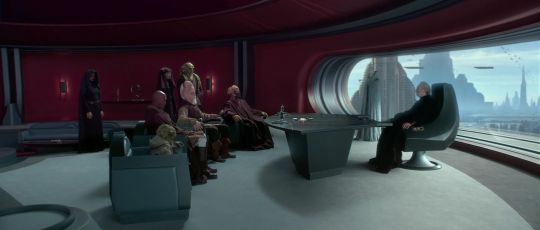
The essential difference between a Jedi Knight and a superhero is that superheroes are fundamentally god-like individuals who fight our battles for us: they topple dictators, stop corrupt politicians and greedy companies, they fend off armies, stop us from destroying ourselves. A Jedi Knight cannot and won't do that. As George Lucas says, "[the Jedi Knights] were never designed to be a superhero or anything like that. They were designed to be a Buddhist monk, who happened to be a very good warrior." Whenever they're do involved in battles, they do so in order to protect key figures who're able to unite their people against the forces of greed and destruction, like Padmé Amidala, both Queen and Senator, and Duchess Satine. They worked closely with the Chancellor of the Republic, especially with Palpatine, who promised to fight off corruption in the Senate and lead the galaxy toward a better future. They are “monk-warriors” who are “monks first, and they try to convince people to get along.” They’re “ultimate father figures” and “intergalactic therapists” and “warrior-monks who keep peace in the universe without resorting to violence.” They are heavily reliant on compassionate, democratic, thus strong galactic community, the ever-growing symbiotic circle, to guard peace and justice: the Jedi Order needed the Republic, and later, the Rebellion, to succeed. And they had reassurance that the lost balance will be restored: it was prophesied that the Chosen One will come and bring balance to the Force.
Horizontal Love, Anakin Skywalker and the Jedi Way
Widely popularized ideas are that the reason why Anakin is not going back to Tatooine to free Shmi, is because he was forbidden by the Jedi Council to do so; he expected something fundamentally different regarding the Jedi teachings, or their way of life, their limitations or the way how they operate - however, these ideas are not just lacking any rational basis in the actual story, but also wildly contradictory to Anakin's portrayal. In truth, all these assumptions are stemming from fans conflating their own expectations and perceptions regarding the Jedi Order with how Anakin and other characters are actually viewing them, and/or the desire to see the hierarchical love paradigm being affirmed by Star Wars.
"I had a dream I was a Jedi. I came back here and freed all the slaves"
In Episode I, Anakin Skywalker is a very compassionate, very selfless and very good kid, who gives without a thought of reward and know nothing of greed, who dreams of becoming a Jedi Knight, and he is very clearly thinking along the lines of the horizontal model of love. He tells Qui-Gon, "I had a dream I was a Jedi. I came back here and freed all the slaves. Have you come to free us?" which clearly shows that he considers himself as part of a team, encompassing all the slaves in Tatooine, and in his mind, a Jedi Knight is not only freeing his mother and friends, the people he's close with, but everyone. When he is about to leave with Qui-Gon to actually become a Jedi Knight, he vows, “I will come back and free you, mom” and we know that he plans to achieve this by making his dream come true.
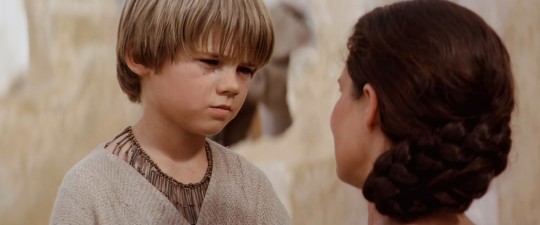
Anakin's situation is the same as Padmé's in Episode I: while Naboo is invaded and its people are tortured, Padmé does not establish a hierarchy between the well-being of her loved ones and the well-being of the rest of the Naboo, but decides to go with Qui-Gon to Coruscant to ask the help of the Senate, which was supposed to be the quickest, easiest and most effective way of freeing her planet. Anakin leaves with Qui-Gon for the Jedi Temple at the heart of the Republic, to become a Jedi Knight, to become the hero who will return and bring freedom to his mother and all of the slaves.
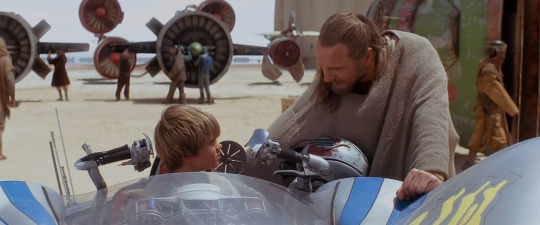
It's to be noted that even though a portion of the Star Wars fandom criticizes the Jedi Knights for not ending slavery on Tatooine or not trying to free at least Shmi, accusing them with indifference or failure to do their duty to guard peace of justice, Anakin Skywalker himself doesn't hold these opinions. He knows that a Jedi Knight brings peace and justice, and his expectations that as one of them, he will free his mother and all the slaves, is realistic: the anti-slavery laws of the Republic are outlawing slavery in the entire galaxy, and in the past, with a functioning Republic, the Jedi Order dismantled the slave empire of Zygerria, enforcing the laws, guarding peace and justice. It's very important to notice, that even though he believes, "no one can kill a Jedi", it never once occurs to him to cast stones on Qui-Gon or the Jedi Order for the conditions on Tatooine - he's offering his help so they can leave the planet and continue their journey to Coruscant as soon as possible. Never once suggests that they should go to battle against the slavers, or use violence against them, not even when he realizes that Shmi must stay on Tatooine. All this clearly shows, he understands and adheres to the Jedi way. Even more so, the only thing that Anakin is shown to be wrong about the Jedi Knights was his belief, "no one can kill a Jedi" - never once he gives any reason for us to believe that he expected something fundamentally different regarding the Jedi teachings, or their way of life, their limitations or the way how they operate. It should be noted that it's not the Jedi Order, but the Republic, what he becomes more and more frustrated with: in Episode II, he admits, "I don't think the system works," believing, if the people can't agree on what's the best for the most people, "Well, then they should be made to."
Anakin's Decision and the Circumstances on Tatooine
Part of the problem is that slavery is a very emotionally charged issue to discuss and for some, this may result in a quite misguided assumption: the fact, Anakin and Shmi were enslaved, means, the mistreatment of the slaves of ancient times, the torture and brutal dehumanization of enslaved black people in the southern U.S. as well as the suffering of victims of modern day slavery, are all integral part of their lives on Tatooine. Oftentimes, it's founded on the belief that their enslavement indicates, signifies, represents slavery in general, thus, it must be viewed, imagined, discussed through the historical, cultural, political and social parameters in which the Atlantic slave trade, how it relates to the U.S. and the West as a whole, is central. However, such approach is highly problematic: the type of slavery they were subjected to, lacked, and therefore wasn't the offshoot of the dehumanizing brutality of racism. In George Lucas' Star Wars story, slaveholders were shown to recognize differences between species, but they collapsed those differences to the consideration: “the weak deserve nothing more than to kneel before the strong, bound to our service.” This type of slavery obviously can, and often will result in brutal, inhuman treatment, but it's crucially important to acknowledge that just like Ancient Greek, Roman and Egyptian slavery was very different from the type of slavery in the southern U.S., slavery in Star Wars also has different political, cultural and social aspects and it must be examined and discussed accordingly.
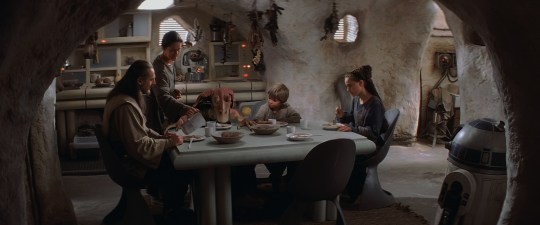
In Episode I, the Skywalkers were shown to lead a life similar to a serf - they lived independently from their slaver, owned personal property and money, were able to negotiate transactions, had considerable freedom in their daily lives. Anakin was shown to feel safe to talk back to Watto, to declare, he won't let himself being defined by his status as a slave, to speak his mind and to confront Sebulba, or to discuss his plan to locate his transmitter and escape, with strangers, and it was shown that a slave is expensive enough that the prospect of having to pay for it, stopped someone as aggressive and hateful as Sebulba from harming Anakin. Although Watto didn't seem to be bothered by promising Anakin to Qui-Gon, which could indicate that it was accepted to split families, it's worth to consider that Watto believed his win to be a fact, thus Anakin will remain his slave, and that he knew that Qui-Gon is from somewhere where the Republic enforces its laws, which explains, why he's not surprised at all when Qui-Gon says, since he won the bet, Watto must release Anakin, rather than transferring ownership.
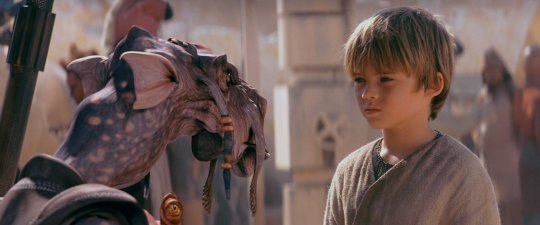
It would be important to note that when he left Tatooine, the cause of Anakin's distress was that he will be on his own and without his mum, missing her, and he become afraid of losing his mother; one must realize that's different from and not the same as being afraid for her life and being worried for her wellbeing. In Episode II, he states, he doesn't understand, why he would have nightmares about her, and when he realizes that he's having premonitions, and returns to Tatooine, his behavior toward Watto is quite friendly, rather than jumping to the conclusion that it must be his former slaver, who harmed Shmi. In fact, George Lucas indicated, Anakin and Watto's reunion in Episode II is analogous to visiting old high school teachers as young adults. What this tells us is that the slaves of those who could very easily afford new ones - such as Zygerrian nobility and Jabba the Hutt - lived a particularly brutal existence, however, most of the enslaved were able to lead a hard, but relatively normal and relatively safe life. Thus, even though Shmi wasn't left in the best circumstances, those circumstances allowed Anakin to leave with the certainty that he will be able to save her.
The Dark Side of "they could've free at least Shmi!"
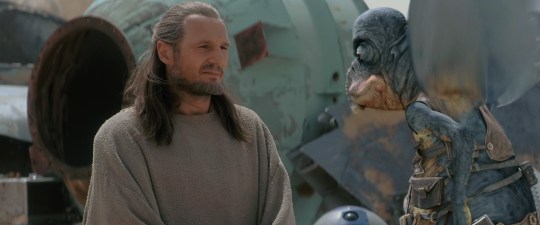
Those people who attach special importance and urgency to Shmi's freedom and insist, Qui-Gon and the Jedi Order was obligated to at least free her, are do so because they like her and they believe she deserves it, or for some, it's Anakin whom they like and therefore they don't want him to be sad without his mum. It's generally unsaid and not even conscious, this type of reasoning postulates that you can and actually, you should arrange people's right to be free into a hierarchy, with those who meet with your standards of goodness who you're close to, or who would make someone you like happy, are enjoying priority over those who you think aren't nice or have no relationship with. Helping those slaves, as this logic goes, is less urgent, they can and they should endure slavery for a bit longer, until the most or more deserving ones are freed. It shouldn't be hard to see, how this way of thinking is actually the flip-side of the way of thinking that condones the institution of slavery, nothing more, nothing less. We have a strong tendency to prioritize the wellbeing of the people who are close to us, who make us feel good, to consider the suffering of people who made us feel bad as well-deserved, to be less concerned, indifferent toward those who we have no relationship at all. But, this tendency is a flaw and it would be important to notice, this is not what Anakin and Shmi would want.
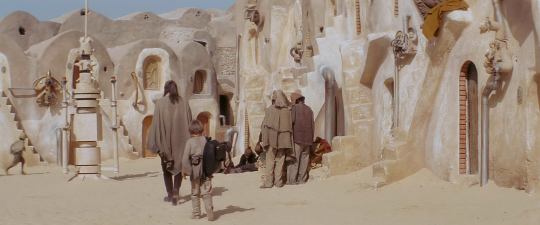
George Lucas’ Star Wars story doesn’t tell us that a non-violent method is the only possible response to injustice and wrongdoing, however, it’s important to point out that this doesn’t mean that it’s ever right to intentionally harm another - but in order to achieve greater benefit for a greater number of people, or when there is no other way to save the defenseless against the aggressor, or it’s an either you or them situation, you can certainly use a violent method. If we examine the situation, killing Watto doesn’t meet with these requirements - it has to do more with the desire to inflict harm upon him or the urge to hit out of those who’re outside of the circle of our personal relationships. Threatening Watto with a lightsaber wouldn’t be as harsh as killing him, but there is no way of preventing him from crying for help - unless killing him - and that would lead to even more killing, not to mention that chances to leave the spaceport would shrink greatly. Therefore, these aren't wholesome responses, and it should be clear why Shmi and Anakin, although he believes, "no one can kill a Jedi," never once suggests that Qui-Gon should go to battle against the slavers, or use violence against them, not even when he realizes that Shmi must stay on Tatooine as Watto's slave, he does not cast stones on him or the Jedi Order for not going to Tatooine to save her. He clearly adheres to these principles in Episode II when he sneaks into the Tusken camp, rather than massacring his way to his mother, but when she dies, out of anger and hate, he wipes them out to avenge her, and in the Clone Wars, he slowly, but steadily becomes more and more willing to kill his opponents, even when he has other options.
A note on Qui-Gon Jinn
Sometimes, Qui-Gon Jinn is accused with being indifferent and ungrateful for not freeing Shmi Skywalker, but, once all unexamined assumptions about the Jedi Order are cleared away, once the dark side of the "they could've save at least Shmi!" is acknowledged, we must realize, Qui-Gon takes Anakin to the Jedi Temple, because he realized, he discovered the promised Chosen One - making him a Jedi Knight, a guardian of peace and justice, giving him the proper training and upbringing to fulfill his destiny, would restore balance to the Force: selfishness under the control of selflessness, people are together as one, cooperating, the Republic functioning enforcing its laws and principles, ending slavery, as it did in the past.

When Shmi asks him, whether he is able to help Anakin to escape slavery, Qui-Gon replies, "I don't know. I didn't actually come here to free slaves." It become popular to assert, this somehow must mean that Qui-Gon is not interested in or he is not intending to free slaves, however, simply no compelling rational basis exists for this assertion. Qui-Gon Jinn is not on Tatooine to free slaves, he was forced to land on the planet ruled by a crime lord, in the middle of a mission to escort a queen who must save millions, to the capital, and he is in desperate need of help. The reason slavery exists in the galaxy is because the Republic no longer functions and fails to enforce its anti-slavery laws. Misinterpreting and misrepresenting these facts is grounded on ingrained mistaken assumptions. In addition, there are those in whom the words, "I didn't actually come here to free slaves" are triggering an emotion that, overthrowing reason, demands them to react with "if he is not on Tatooine to free slaves, he doesn't want to tear down the system!" Which, of course, lacks any sane basis.
The Life and Fate of Shmi Skywalker - the Problem with "Deserving"
It was Shmi Skywalker who taught her son, "the biggest problem in this universe is nobody helps each other." She, just like Anakin, gave without the thought of reward and was full of compassion: despite she was a slave on a world made of dust, Shmi had unwavering commitment to, and raised her son in the spirit of the horizontal love paradigm, was willing to offer refuge to strangers in her home and sharing her meal with them, and was willing to let her son go, so he can become a guardian of peace and justice in the entire galaxy.

Shmi Skywalker, just like her son, had no misconceptions about the Jedi Order and the galaxy: she didn't accuse Qui-Gon or the Jedi in general with failing their duties or being indifferent toward them, and even though she was well aware that the failing Republic abandoned her, she took no pleasure in the misery in the misfortune of Padmé and the others, but was willing to help and letting Anakin to help them. After Anakin left Tatooine to begin his Jedi training, Shmi was freed from salvery by Cliegg Lars, a moisture farmer who later married her. One day, when she was out in the morning gathering mushrooms, she was abducted by Tusken raiders, and she was subjected to brutal torture. Anakin returned to Tatooine to save her, but when they reunited, Shmi succumbed to her wounds and died in his arms. She didn’t ask her son to avenge her, she wasn’t bitter, hateful, angry, fearful. She was happy: “Now I’m complete” and she had nothing to say but, “I love you.” In Clone Wars, Anakin, referring to him wiping out the Tusken village out of revenge, claims "I failed as a Jedi, and I failed you" - implying that Shmi, taught him the same morals and ethics as the Jedi Order.
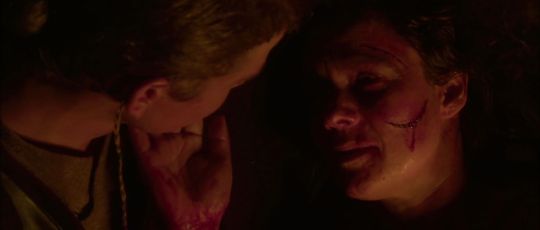
We tend to believe that the world is under the direction of a cosmic moral judge, rewarding good people and punishing bad people - for this, the fate of Shmi Skywalker is often deemed undeserved. From such notions, follows the idea that Qui-Gon Jinn or the Jedi Order was supposed to make sure that justice will be served for her, and what happened to her must be the result of that those, who were supposed to be agents of that cosmic judge, were failed to do their duties. However, the harsh truth is that, the probability of Shmi being abducted by Tusken raiders on Tatooine was the same as the probability of being murdered on any other planet, say, Coruscant. George Lucas' Star Wars presents a cosmos that is devoid of a cosmic system of reward and punishment, and attempts to blame her death on the Jedi Order is quite desperate. The life and death of Shmi Skywalker illustrates the lesson, life will do its own thing, it's not working as a mechanism by which the universe will bring good to good people, bad to bad people. We're interconnected, our lives are interwoven into each other, what happens to us is the product of the actions of others as well as our own, and determined by the degree of balance between selfishness and selflessness without ourselves as well as within others. The greed of Nute Gunray led to the invasion of Naboo and the death of Qui-Gon Jinn, but also led Qui-Gon to Tatooine, where he found Anakin. Shmi let her son go, and her action resulted in the liberation of Naboo, but a decade later, also the formation of the Empire, the destruction of Alderaan, and eventually the death of the Sith and the restoration of balance. Shmi being freed by Lars led to her death in a Tusken camp, Lars marrying Shmi led to his son dying by the hands of imperial storm troopers. All of existence is a vast nexus of causes and conditions, constantly changing, in which everything is interconnected to everything else. Shmi Skywalker illustrates, happiness is not in a reward-punishment system that distributes good and bad among living things based on whether or not they were good or bad. Tapping into her compassion, she was able to accept the reality of the ebb and flow of pleasure and pain of being alive, and was able to find an inexhaustible source of contentment, peace and joy, strength, determination and hope.
Sources:
Star Wars Archives 1999-2005
Star Wars: The Phantom Menace “Prime of the Jedi” featurette
George Lucas’ foreword for Shatterpoint by Matthew Stower
Interviews with George Lucas 1 2 3 4 5
George Lucas' audio commentary for his Saga
Star Wars Saga and Star Wars: The Clone Wars
Please note: I used no Disney or Legends Star Wars materials, (save for the one Shatterpoint foreword) - but I accept that others may found their own reading on them, thus, might come to different conclusions than I do.
#shmi skywalker#anakin and shmi#star wars#very long post#pro jedi order#jedi morals#compassion#attachment#qui gon jinn#slavery#tw slavery
285 notes
·
View notes